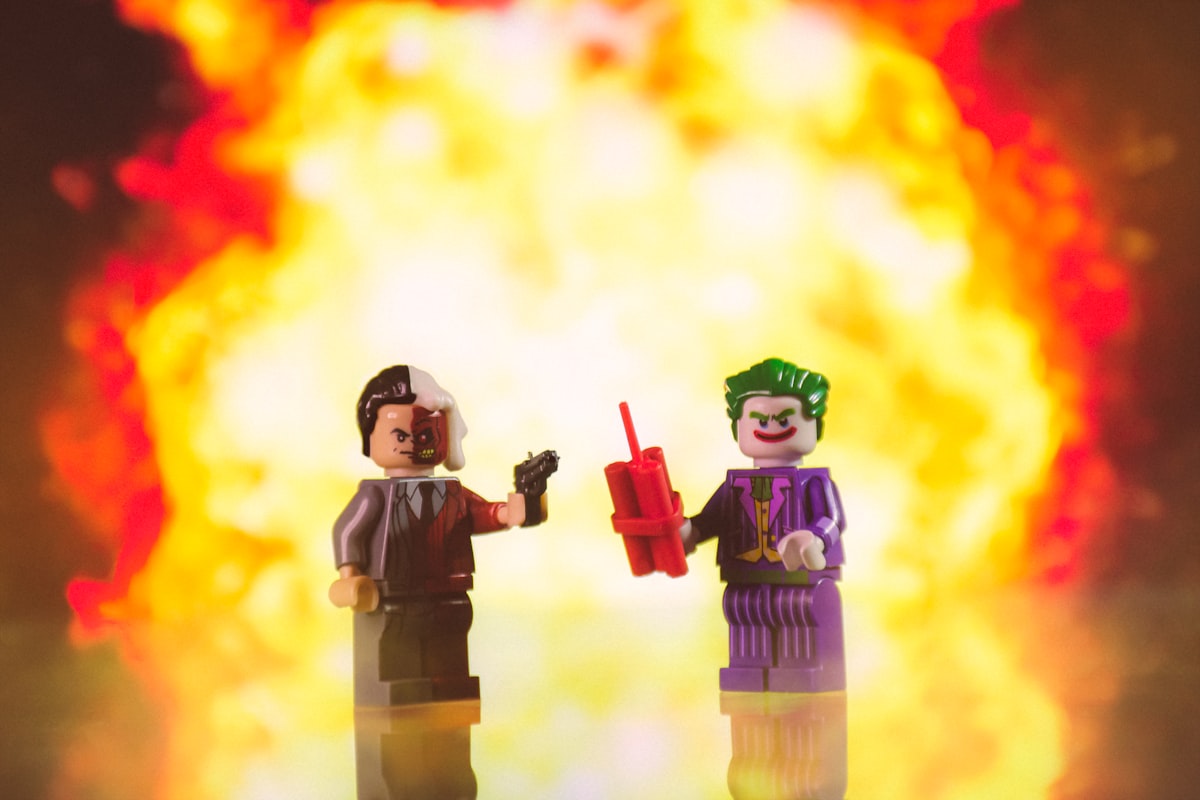Have you ever played a game and thought to yourself, “What the hell is going on here?”
Sometimes, games feel like a ginormous mishmash of ideas that never quite come together.
Like when you find yourself in the middle of a battle - only to hear one of your NPC buddies reminiscing about life back home. What is that dude even talking about? This ain’t the time, man!
When we're in a battle, we're feeling a certain kind of way. We're just not ready for a heart-to-heart talk. We want to fight!

In real life, your buddy soldier wouldn't be talking about home. He'd be busy fighting right alongside you.
But sometimes in games, it can feel like characters are living in different realities.
Why does that happen?
The truth is, different departments in a game studio sometimes lose track of each other’s work. It’s not intentional. But the work is hectic and demanding and sometimes teams forget to make the time to check in with each other.
The worst case of this I ever saw was a project where the lead writer decided he needed “some heads-down time." So he went into an office, shut the door - and didn’t come back out for six months.
Meanwhile, the design team kept working, prototyping and refining their ideas.
By the time the lead writer emerged with his awesome story, it had almost nothing to do with the game.

The executives lost their minds. The rest of that project was a nightmare. The team worked night and day to bring story and gameplay together before the game shipped.
From an outsider’s perspective, it sounds like such an avoidable problem! But the reality is that writers DO need heads-down time. So do designers. So do the audio guys. So do the programmers. EVERYBODY does at some point. It’s how you do your best work.
And one of the dirty secrets of game development is that there’s a lot of churn. People leave the industry all the time. And when they do, they take their hard-won experience with them. That means that when warning signs start to emerge on a project, there’s nobody there to recognize them.
When game developers’ work gets out of sync, it’s as if everybody is working on separate games. And that’s no good for anybody.
So how do we keep all these hardworking game developers in sync?
For some studios the answer is “endless meetings." But I’m going to propose a solution that is a whole lot simpler. It’s one I bet you remember from 11th-grade English class: THEME.
So first things first: what do we mean by theme?
There are lots of definitions out there. And most of them are pretty weak. Google "theme" and you'll find "The subject of a talk, a piece of writing, a person's thoughts, or an exhibition; a topic.” Zzzz!!! That is boring - and unhelpful.
Let’s look at a definition that IS helpful - one that opens up our eyes to help us see the possibilities hidden in our own work.
In his book The Anatomy of Story, Truby writes:
Theme may be the most misunderstood of all major aspects of storytelling. Most people think of themes as subject matter…I don’t refer to them as subject matter. Theme is the author’s view of how to act in the world.
In other words, the theme is the creative point of view. It’s how you see the world you’re creating and the adventure you’re building for others.
Sometimes, that “view of how to act in the world” is pretty wholesome. For example, what is the theme of the Harry Potter books? Maybe it's something like, “When you are blessed with great talent and power, you must become a leader and sacrifice for the good of others.”
(Laid out in one sentence, that sounds pretty boring, doesn’t it? But was it boring in the books? No it was not.)

Themes can be wholesome, or evil, or somewhere in between. The theme of that old Paul Newman movie The Sting might be “A little lying and cheating are OK if you bring down an evil man.” (It's OK if you haven't seen it; you get the idea.)
It doesn’t have to be a point of view you believe in, personally. It can just be a point of view you want to explore in the game you’re building.
That guy Shakespeare introduced a different theme in every play he wrote. Romeo and Juliet’s theme could be summed up as “love conquers all.” Is that what Shakespeare really thought, in his heart of hearts? Probably not. (I mean, look at Macbeth.) But it’s a point of view he committed to - in that play. Every element in the script brought that theme to life.
So OK. Let's say you're willing to give this a try. How do we use this in our own work, as game developers?
You start by working with your creative leads to figure out what your theme IS. This requires something a little bit scary: emotional honesty. Get together with the other creatives and talk about what inspires you, what scares you, what captures your imagination.
You can start with your subject matter, and work from there. For example, let’s say - hypothetically speaking - your game is about a utopia gone wrong. Well, WHY did it go wrong? Maybe the original vision was to build a place for the elites - a place where the normal rules didn’t apply - and the power went to the people’s heads. So does that mean you want your theme to be about how people shouldn’t try to be excellent? You could - but is that a point of view you care about?
If not, maybe you DO want to explore how society holds brilliant people back. Or maybe you want to explore how human beings have an endless taste for self-destruction - even the smartest ones among us. Or maybe you want to explore the idea that free will is an illusion. We all think we have free will, but in reality we are all responding mindlessly to impulses and desires, like the animals we are.
So let’s say that last one DOES sound interesting to you and your team. Great! Now the goal is to bring that theme to life, in every way possible, using whatever tools you've got.

Here’s what that could look like:
You create NPCs that are slaves to their passions - addicted to drugs, for example. Your characters talk a big game about free will. Your level designers build an oppressive, terrifying environment. Your designers create shooter game mechanics that tap directly into the player’s lizard brain, a place where we are controlled by our fight-or-flight instincts - and we aren’t really thinking at all.
That approach involves every department - design, art, narrative, everybody. Each department is focused on their piece of the puzzle, but all the puzzle pieces fit together in the end.
And then you’ve got a game and story that work together seamlessly - where everything somehow feels connected, in ways that maybe you can’t quite explain but you can definitely feel.
And THAT’s the magic of theme. ✨ 🪄
Write great scripts with this free guide
Want to improve your writing skills? We can help. We've created an easy 5-step guide you can use to write scripts your players will love.
Best of all, it's free. Just click the button below!
Susan’s first job as a game writer was for “a slumber party game - for girls!” She’s gone on to work on over 25 projects, including award-winning titles in the BioShock, Far Cry and Tomb Raider franchises. Titles in her portfolio have sold over 30 million copies and generated over $500 million in sales. She is an adjunct professor at UT Austin, where she teaches a course on writing for games. A long time ago, she founded the Game Narrative Summit at GDC. Now, she partners with studios, publishers, and writers to help teams ship great games with great stories. She is dedicated to supporting creatives in the games industry so that they can do their best work.

